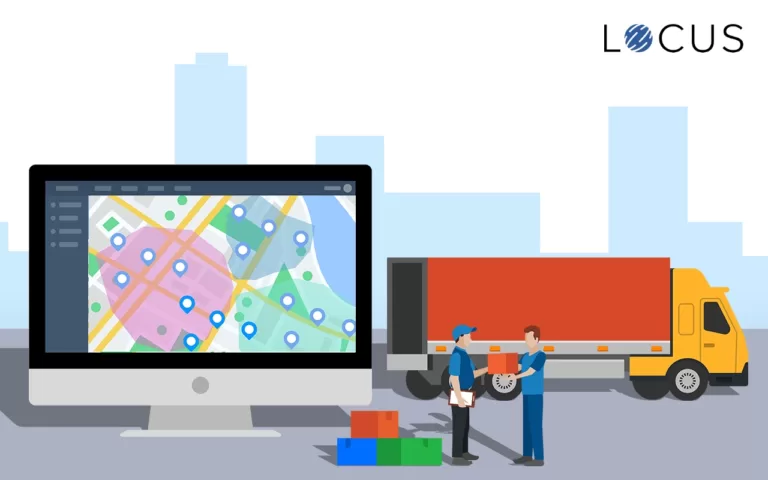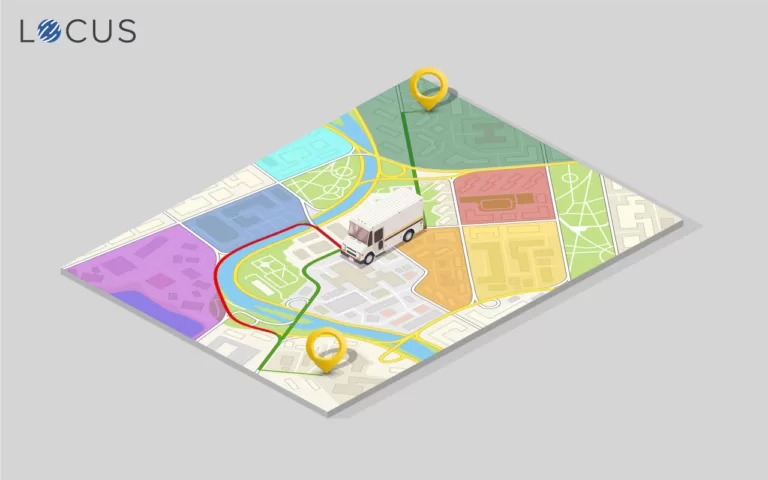Supply Chain Optimization, Webinars
The role of AI in Supply Chain Transformation: Locus Webinar Takeaways
May 14, 2020
6 mins read

Supply chains around the globe are in absolute chaos today. COVID-19 and uncertain lockdowns have caused major disruptions in the way businesses operate. To define the emerging industry trends, and the role of Artificial Intelligence in modernizing the retail and FMCG supply chain, Locus recently hosted an exclusive live webinar.
Darija Pizent, Director of Supply Chain at Atlantic Grupa, Croatia’s top brand in fast-moving goods and regional food and beverages; Dinko Crkvenac, Director of Supply Chain & Logistics at Konzum, Croatia’s largest supermarket chain with over 700 stores; and Krishna Khandelwal, Chief Business Officer at Locus, were the key panelists at the webinar.
The speakers deliberated on the ongoing fluctuations in the consumer goods supply chain due to the pandemic, the challenges coming along the way, and shared some key insights that could help enterprises prepare their supply chains for the days to come. Here are some key takeaways from the insightful webinar.
How is the Retail and FMCG Supply Chain impacted by COVID-19
“The key functional elements of a typical supply chain often overlap with each other, leading to complexities in decision making. For instance, customer experience overlaps with planning and forecasting, and production overlaps with warehousing. Supply chain management is not a cakewalk, and in unusual circumstances like this, it becomes even more difficult,” said Krishna.
From sourcing to demand forecasting, and manufacturing to inventory management and distribution, all critical elements of the supply chain are impacted in some way or another by the pandemic.
Check out Locus On-ground Report on How has COVID-19 impacted different industries
“The biggest impact during the first few weeks could be seen on supplies as the inbound trucks coming to distribution centers were delayed. Companies also lost the traceability of incoming goods. The classic bull-whip effect can be seen across the supply chain, hugely impacting demand and supply forecasting,” said Darija, pointing out her experience during the initial days of the outbreak.
Also, due to the huge increase in the demand for certain categories of products, inventory management has gone haywire. Winning products are getting overstocked, while the low-selling products are now flying off the shelves.
“This whole phase is defined by a range of new trends in buying. customers’ shopping lists have completely changed, their baskets are different and the locations from where they are buying are totally different. New categories of products are having excessive demands,” Dinko added.
Check out Locus On-ground Report on The Ripple Effects of Lockdown
Supply Chain is Evolving; It’s time to catch up
Today’s supply chains are not the same as a decade ago. Product life cycles have become shorter and demand planning has become more iterative and analytical. Customer expectation for faster deliveries is constantly increasing and logistics is not just a cost center anymore, but a key differentiator.
“Today companies have started to plan supply chain operations around logistics, historical information, demand-driven, and promotion-driven planning. But there is a long way to go,” said Dinko.
The biggest disruptions in the supply chain come from customer demands; the demand for more flexibility, speed, and convenience. Logistics and distribution is now being recognized as a big part of the system, that can highly impact the profitability of a company and the overall customer experience. Omnichannel, Buy Online Pick-up In-Store (BOPIS), and Direct-to-customer distribution are now much in trend due to social distancing.
“Based on customer demands, businesses must strategize distribution operations, including facilities and handling units. They have to make effective decisions, such as whether to have large warehouses or small cross docks. In the coming future, more flexibility in distribution and delivery networks will be in high demand,” Darija added.
Over the course of a decade, the supply chain industry has gone through a phenomenal evolution. Events like COVID-19 only add to the pace of this evolution and companies must respond to this with greater flexibility and agility. Businesses that can catch up with the industry trends will thrive, while those that cannot adapt to change will stay behind.
Know about COVID-19 and Supply Chain: Disruptions and Actions
AI in the Supply Chain: A must-have
COVID-19 has disrupted decision-making in supply chains due to lack of data, visibility, and uncertainty of the future, hence all the interventions revolve towards making intelligent, smart, and contextual decisions.
Traditional decision-making systems will go for a toss as the parameters will shift towards – response time, computation power, and optimization. Full-scale AI systems will replace manual computation and improve decision making in the future.
Dinko said, “The food retail and consumer goods business is all about the customer and fulfilling customer expectations. With panic buying and stockpiling of goods, customer buying behavior has changed dramatically, probably for a long time now. AI can largely assist in breaking down this pandemic customer behavior and plan better for the times ahead. Improved supply chain planning will thereby help in better management of all elements and reduced operating costs.”
Even for large scale enterprises that already have stronger tech-driven systems such as Transport Management System or Warehouse Management System, it is important to make the best use of the huge data available with the power of analytics to make faster and better decisions during this tough time.
“Each crisis opens up new opportunities and the possibilities are huge with Artificial Intelligence in the supply chain. Digitization is the need of the hour. Currently, companies must focus on digitizing paperwork, manual processes in warehousing, and automate logistics activities in order to improve productivity, and remain competitive,” Daria suggested.
The key for smart supply chain management in today’s uncertain world is to identify areas that need to be improved and implement technology gradually, keeping in mind dynamic customer expectations and effective transition from traditional to modern processes.
“A lot of past opportunities will soon become necessities in the supply chain. Technology is no more just good-to-have, but a must-have for smooth operations of a supply chain. AI brings endless opportunities for supply chain businesses to grow, even during crunch times,” said Krishna.
Download Whitepapers: The Role of AI-powered Logistics in E-commerce 4.0
Locus offers AI-driven logistics solutions to businesses in the supply chain. Get started with a free demo with Locus Experts and optimize every element of your logistics.

Related Tags:

3PL
Zone-based routing is the need of the hour
Terms like Red, Amber, Green; Red, Orange, Green; phased opening; restrictions; have all become a crucial part of our lives in the last few weeks. With the world slowly opening up amidst the Covid-19 outbreak, supply chain and logistics is going to play a really crucial role in setting up the ‘new normal’. Team Locus caught up […]
Read more
Last Mile Delivery Optimization
COVID-19 : Time to Zone out
Ever since the global community took note of the COVID-19 transforming into a pandemic, enforced social distancing or lockdowns have been a consistent reaction from every Government (barring rare exceptions like Sweden). The severity of the lockdown has varied from recommendations to stay indoors to military enforced mandatory restrictions on any movement deemed non-essential. India, […]
Read moreMOST POPULAR
EDITOR’S PICKS
SUBSCRIBE TO OUR NEWSLETTER
Stay up to date with the latest marketing, sales, and service tips and news


The role of AI in Supply Chain Transformation: Locus Webinar Takeaways